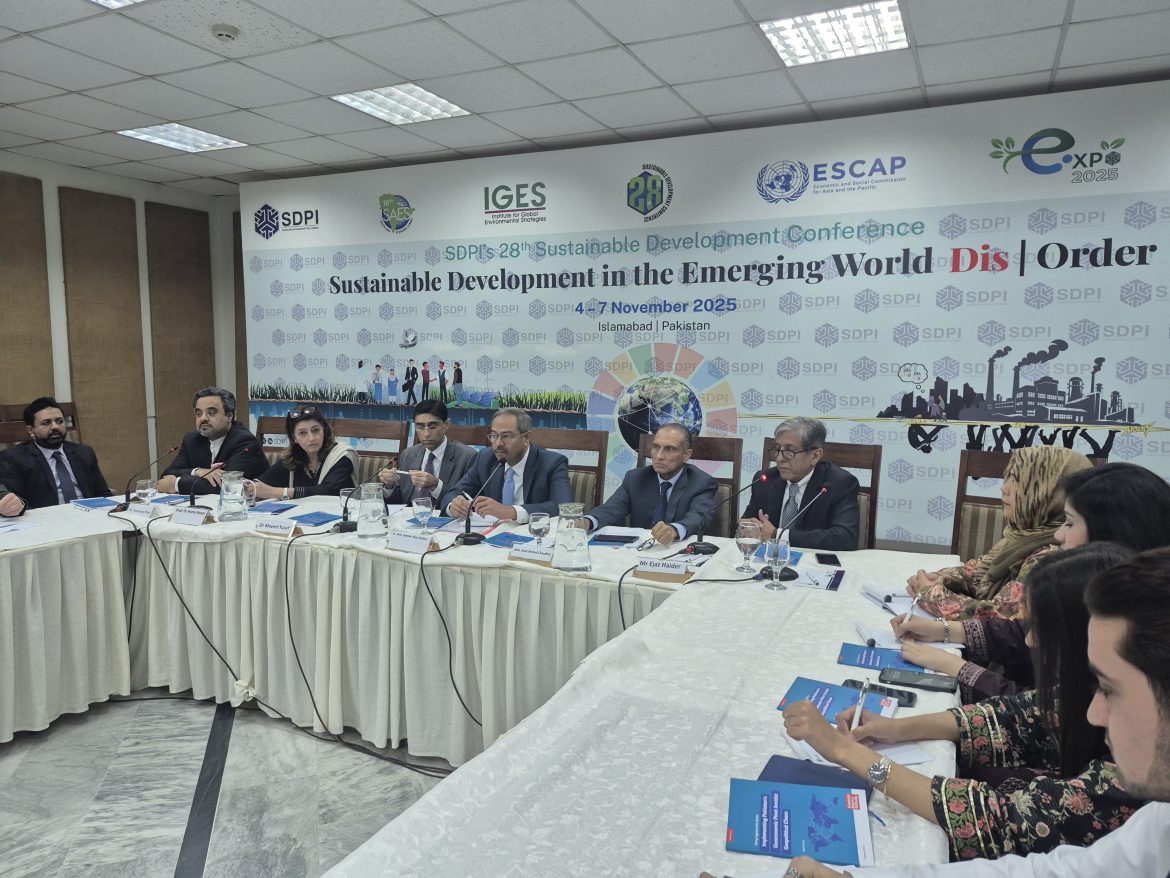WNAM REPORT: Pakistan’s long-term security and prosperity depend more on building “cooperative geo-economics” and deep regional interdependence than on traditional military posturing, stated former National Security Adviser Dr Moeed Yusuf at the launch of a new report published by Friedrich-Ebert-Stiftung (FES) Pakistan.
The report, titled “Going Against the Grain: Implementing Pakistan’s Geoeconomic Pivot Amidst Geopolitical Chaos”, was unveiled on the second day of the 28th Sustainable Development Conference, organized by the Sustainable Development Policy Institute (SDPI) in collaboration with FES Pakistan.
Dr. Yusuf emphasized that Pakistan’s stability should become a shared interest among both friends and rivals. “Our goal must be to create such economic interdependence that any instability in Pakistan imposes costs on multiple stakeholders,” he said. He proposed that Pakistan adopt a “no-cap” (multi-aligned) foreign policy approach, prioritizing connectivity and regional cooperation over alignment with any single global power.
Elaborating on the concept, Dr Yusuf explained that while global politics is shifting towards protectionism and economic weaponization, Pakistan’s best option lies in leveraging cooperation rather than confrontation. “Pakistan cannot meaningfully weaponize its economy, but it can build resilience through interdependence—by attracting capital, enabling outbound trade, and exporting skilled manpower,” he noted.
He suggested that Pakistan pursue 10–20 flagship projects co-locating Western and Chinese investments to ensure that international stakeholders have a vested interest in the country’s stability. This approach, he said, aligns with the spirit of FES Pakistan’s advocacy for cooperative, people-centered, and development-oriented policy frameworks.
Dr Huma Baqai, Rector of MiTE University, commended the report for its pragmatic and balanced vision for Pakistan. “The document moves away from pessimism and excessive intellectualism, focusing instead on realistic strategies for economic diplomacy and regional collaboration,” she said.
Former Foreign Secretary Aizaz Ahmad Chaudhry underscored that sustainable geo-economics requires political stability and mutual trust among regional actors. He noted that Pakistan’s National Security Policy (NSP) had made strides in defense and strategic thinking but must now prioritize economic and human security.
Lt-Gen (Retd) Aamir Riaz highlighted that the NSP provides a guiding framework for socio-economic balance and internal resilience. “The issue is not with the policy’s design but its implementation,” he stated, stressing the importance of civil-military cooperation and good governance to achieve the goals envisioned under Pakistan’s cooperative geopolitical framework.
Concluding the session, Ambassador Shafqat Kakakhel, Chairperson of the SDPI Board of Governors, thanked Friedrich-Ebert-Stiftung Pakistan and Hamayoun Khan, Programme Advisor, FES Pakistan, and all panellists for their contributions, noting that the collaboration reflects FES’s longstanding commitment to promoting dialogue, inclusive growth, and social democracy in Pakistan.


